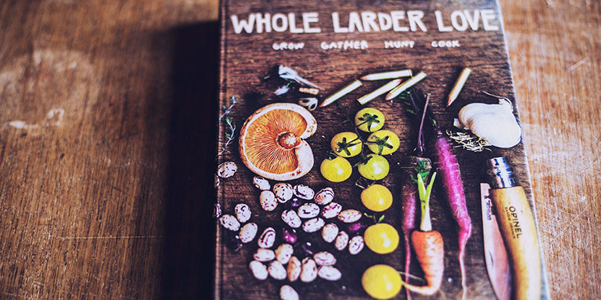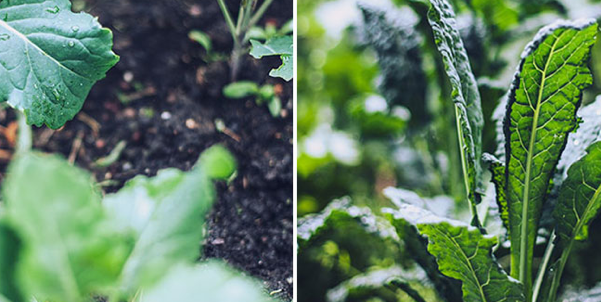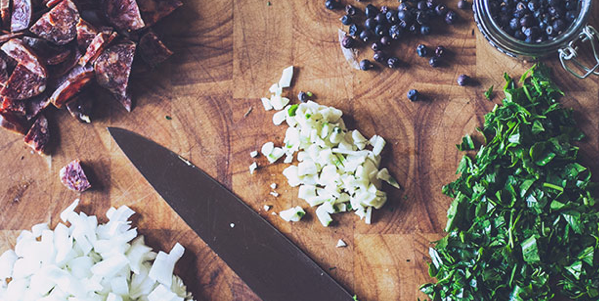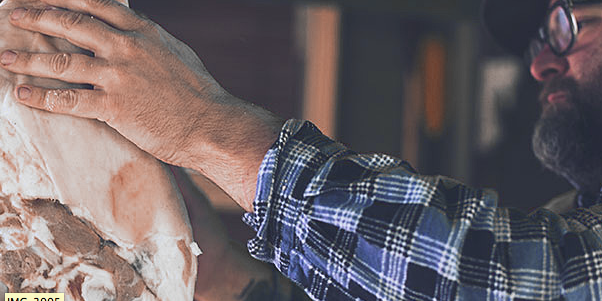Concrete Playground talks to Rohan Anderson (Whole Larder Love)
We preview the new book and talk about cities without supermarkets.
Rohan Anderson is a man of his word. Though the terms “sustainability”, “ethics” and “green living” are slung about a lot these days, they are values that few people fully live by. But just a month ago, Anderson threw himself out of the cannon and into the unthinkable: he quit his job and started living off the land.
“I was working part-time as a graphic designer,” he says. “I would go to an office under the fluorescent light and stare at the computer screen and do the work and put up with all the internal politics of the workplace. And none of it....none of it felt real. None of it made any sense at all. It was so unnatural and so unhuman.”
He also, this month, launched a cook book called Whole Larder Love, based on his blog which chronicles his quest for semi-self-sufficiency in rural Victoria. Four years ago Anderson was feeding his kids frozen chicken nuggets. He now purchases “only really basic stuff: flour, sugar, salt, yeast, milk, deodorant, toothpaste. What we’ve eliminated from our shopping trolley is the cardboard packaged food, frozen food, fresh food that’s out of season and meat from supermarkets.”
Anderson’s grimy-nailed, bloody-shirted, sweaty-palmed account of hunting, gathering and harvesting is miles away from the sanitised green consumerism spruiked by celebrity chefs from the safety of their stainless steel kitchens. Though the book contains epicurean delights like Rabbit with Mustard Sauce, he flatly rejects the term “foodie”. “My grandfather is from Barcelona. Imagine if you went up to him and said, ‘because you eat beautiful Spanish tapas, you’re a gourmet, you’re artisan because you love good food’. No, that’s just food. That’s just normal food. I definitely want to distance myself from being the wanker foodie that loves a bit of foam on the plate. I don’t eat out at restaurants. It’s not the reality of what food should be. Food shouldn’t be overcomplicated. Otherwise, you distance the notion of accessibility and being clever with basic ingredients.”
Food for Anderson is not just a source of fuel or even gastronomical enjoyment, but a political and an environmental concern. “I hate calling Whole Larder Love a cookbook,” he says. “It obviously is a cookbook, but there’s more of a subversive intention there. I really do want to promote the idea of people going back to the old ways of growing their own food. It will dramatically reduce our reliance on supermarkets. Most people know that there are big lorries that drive all this food around and food is actually air- and ship-freighted from other countries. That takes a lot of finite resources. I don’t think that system can last much longer. We’re now in a system of food production where we’re relying on a pretty massive machine that one day could fall over. I have gone back to embracing my animalness, which means taking care of all my food with my hands as all other animals do in the natural world. I’m going back to the good life, and I grow my food and I hunt.”
“The real philosophy behind it is that I want to show people that it is possible in 2012 and to marry old techniques and state of the art communication technology. Today I’ve just shovelled a trailer load of manure from Ballarat to go on the pumpkin patch. And the pumpkins will grow all summer, they'll be cured, and we'll have about forty pumpkins for winter for the six of us. Then this afternoon I’m going to go out and chuck two trailer loads of timber for firewood for preparation for next winter. Then I will sit there on my MacBook Air and write up a blogpost.”
It’s a mindset loaded with idealism and a book that motivates people to pick up alternative ways of thinking, and more importantly, doing. “My lifestyle is not for everybody. But I will continue to communicate it. The best thing is when people send me photos of what they’ve harvested on the weekend, how they’ve been inspired, how they’ve bought some chooks and built a chook-house. I love that the blog has had an effect on some people.”
As a result of his interactions with readers, Anderson reckons more people are bulking at the artificial delineations between the built and natural worlds. “I was in Chippendale a couple of weeks ago - they have worm farms and vegie gardens on the nature strips.” Along with growing your own produce, he says engaging with these kinds of community gardens and farmers’ markets are pragmatic ways to break down what he sees as “the boxed-in areas of nature” that typify unhealthy, unsustainable city life.
And he insists that his hunting and gathering lifestyle doesn’t have to be all-or-nothing: city-dwellers can do it too. “People who even just have a balcony, a rooftop, a backyard - where-ever you are in the Western world - can grow food. In the big cities in Italy - Rome, Florence and Milan - the nonnas that live there have so many vegies growing on their verandahs. It’s like an oasis on your verandah, as opposed to your typical Aussie gas barbeque, a couple of dead ornamental plants and maybe somebody’s bike. These gardens in Italy were just full. It was so inspirational to see what could be done in very tight spaces. Someone had pumpkins on a verandah - they were massive and this person had trained these pumpkins to go vertical, diagonal, anyway in any space possible. That was a beautiful thing to see, that even in the cities, they want to grow and smell and feel fresh food. That’s such a beautiful thing.”
Photos courtesy of Rohan Anderson.








